This article was medically reviewed by Luba Lee, FNP-BC, MS. Luba Lee, FNP-BC is a Board-Certified Family Nurse Practitioner (FNP) and educator in Tennessee with over a decade of clinical experience. Luba has certifications in Pediatric Advanced Life Support (PALS), Emergency Medicine, Advanced Cardiac Life Support (ACLS), Team Building, and Critical Care Nursing. She received her Master of Science in Nursing (MSN) from the University of Tennessee in 2006.
There are 9 references cited in this article, which can be found at the bottom of the page.
wikiHow marks an article as reader-approved once it receives enough positive feedback. This article received 20 testimonials and 98% of readers who voted found it helpful, earning it our reader-approved status.
This article has been viewed 332,888 times.
Your hematocrit level is the amount of red blood cells present in your blood. For adult males, it should be around 45% of your blood; for adult females, around 40%.[1] The hematocrit level is an important determining factor in diagnosing different illnesses. High hematocrit levels are commonly caused by lung and heart disease, as well as dehydration. An increase in hematocrit level means that you may be experiencing shock or hypoxia – a condition where there is a depleted amount of oxygen circulating in your body. On the other hand, lower levels of hematocrit will mean that you may have anemia or a condition where there is an insufficient amount of oxygen circulating in your blood. If your hematocrit level has spiked, start with Step 1 below to bring it back to a normal range.
Steps
Modifying Your Diet
-
1Avoid taking iron supplements. Your body needs plenty of hemoglobin to create red blood cells. The easiest way for your body to get hemoglobin is iron. Since red blood cells are essentially what makes up your hematocrit level, avoid taking iron supplements so you're not getting too much iron.
- If you're currently taking iron supplements and you're worried about stopping, talk to your doctor about what your best course of action is.
-
2Stay hydrated. The effect of dehydration in your body will result in higher hematocrit levels, a higher whole blood volume, and higher plasma volume as there's less liquid in your body to dilute your blood. This means when you are severely dehydrated, your hematocrit level will be sky high; on the other hand, if you have a sufficient amount of water in your body, your hematocrit level will remain within normal.
- Coconut water, unconcentrated juice drinks (like apple and pineapple juices), and sports drinks (like Gatorade or Powerade) are all great options.
- Remember that drinking 8 to 12 glasses every day will do wonders for your body. Make it a habit to increase your fluid intake, especially if you are in the middle of doing something very strenuous.
Advertisement -
3Know what drinks to avoid. Drinking caffeine and alcoholic drinks are discouraged because both of them are diuretics. They stimulate urination and can cause dehydration even though you're consistently drinking. To keep your hematocrit levels low, skip the soda, wine, hard liquor, and beer, and stick to water or unsweetened juices.
- By drinking more fluids, the concentration of the blood will be diluted because the body also stores fluid in our bloodstream, thus lowering the concentration level of the hematocrit. Aim for an intake of 2 liters (0.5 US gal) a day or more to keep a normal hematocrit level.
-
4Eat grapefruit every day. Recent studies have shown that eating 1/2 to a whole grapefruit every day can lower your hematocrit levels.[2] The higher your levels, the more effective grapefruit will be. Include a half with your breakfast and half the other half as a snack at midday.
- This is because naringin, a flavonoid seen in high concentrations in grapefruit, can lead to phagocytosis, which is a process that naturally removes red blood cells from your blood, converting them into other uses.
-
5Get more anti-oxidants. These help protect the body from free radicals which are thought to cause cancer and other blood-related diseases. When you consume supplements or foods that are rich in anti-oxidants, transport of oxygen in your body is easier. Good sources of these are prunes, beans, and berries.
- Anti-oxidants help in a number of ways, but the most important thing to note when it comes to lowering your hematocrit level is that it can help in providing oxygen to the blood so that it can properly circulate in your body. It does not only help in avoiding diseases but will also help in promoting good health.
Modifying Your Lifestyle
-
1Exercise in moderation. Getting in regular moderate exercise is important for your health. However, you don't want to overdo it. Exercising too rigorously can increase your hematocrit levels. Some good moderate exercises you can do are:
- Brisk walking
- Light bicycling
- Cleaning
- Lawn mowing
-
2Donate blood. According to the NHS Blood and Transplant, the frequency of giving blood should be a maximum of 4 times a year or an interval of 12 weeks between blood donations. Only do this as a last result and only if you have consulted your physician. If he or she does approve of this measure here's why it's helpful:
- This can cleanse your blood as your body tries to replenish the amount of blood that it has lost, making the circulating blood fresh.
- This removes excess iron in your body. An excessive amount of iron is thought to be the cause of atherosclerosis or the hardening of your arteries. When you donate blood, about 250 mg of iron will be removed from your body cutting your risk of developing cardiovascular diseases.
-
3Take mini aspirin. Again, only do this as a last resort because it can have other untoward effects. Make sure that you consult your doctor about taking aspirin as a means to lower your hematocrit levels because the only way for mini aspirin to help in lowering your hematocrit level is when it causes gastrointestinal bleeding.
- Aspirin is an anti-platelet drug. Platelets help a lot when it comes to clotting in the event of an injury. When you take mini aspirin as a means to lower your hematocrit level, know that it can thin out your blood completely which can result to your blood's inability to clot, lightheadedness and other neurological deficits.
-
4Stick to lower ground. Areas with high elevation have a lower oxygen concentration than areas with lower elevation. An area of more than 8,000 feet (2,438.4 m) above sea level is considered to have ”thinner oxygen." People living in these areas generally have high hematocrit. Moving to a lower altitude residence will help return your hematocrit count to normal.
- As an adaptation to the environment, the bone marrow which is responsible of producing RBCs produces more RBCs to compensate for the low oxygen level of the body and as a result, there is a high concentration level of hematocrit in the body.
-
5Stop smoking. Nicotine in cigarettes and other tobacco products impairs the blood circulation by altering the oxygen carrying capacity of your red blood cells. The body compensates for the problem of having low oxygen levels by having the bone marrow produce more RBCs, thus increasing the level of hematocrit in your body. Stopping smoking or consuming any other tobacco product will help lower your hematocrit level.[3]
- Quitting smoking is also best for your heart, lungs, skin, hair, and your entire body. Aside from that, it's also better for those around you. If doing it for your hematocrit isn't enough, do it for these reasons.
-
6Treat the underlying cause. Elevated hematocrit levels may be related to a different disease entirely, namely variations in cancer and a potential tumor. Tumors and cancer – especially in the bone marrow – create an uncontrolled production of blood cells.[4]
- Do not jump to any conclusions if you have a high hematocrit count. Consulting your doctor is the best way to know how to reduce your hematocrit level effectively and the only way to know why your hematocrit level is high.
Recognizing a High Hematocrit Level
-
1Monitor your headaches and dizziness. These two symptoms are the result of an excessive number of RBCs in the blood making the blood concentrated. As a signal and compensatory mechanism, headache and dizziness can result from high hematocrit levels.
- Concentrated blood is viscous – meanings that it's thick and sticky and doesn't flow as well. In return, the delivery of oxygen to the brain is slightly decreased. A lack of oxygen in the brain can turn very serious quite quickly.
-
2Talk to your doctor if you feel weak and fatigued. This is an overall bodily response to viscous blood that has difficulty in delivering oxygen and nutrients to the entire body. If weakness is something you're feeling 24/7, talk to your doctor as soon as possible.
- Fatigue can be a sign of any number of ailments, not just high hematocrit levels. To know what your fatigue is a symptom of, see your doctor. Only a medical professional can then point you on the right route.
-
3Monitor your breathing. Those with high hematocrit counts often suffer from "tachypnea." This is just a medical term that refers to a fast breathing pattern of more than 20 cycles per minute. This is a short-term compensatory mechanism of the body in response to a poor delivery of oxygen.
- Again, in isolation, this is not a symptom to worry about. Only if you find your breathing is hastened more often than not and for no good reason should this be cause for alarm.
-
4Look for bruising. High hematocrit levels may cause bruising if you have polycythemia vera. Concentrated, viscous blood is prone to blood clots all over the body. Bruising appears as a violet to black in color anywhere on the body. Some are painless and some are painful.
- Bruising is a normal result of injury. The bruises that you should pay attention to – especially when considering hematocrit counts – are the bruises that seem to have no cause. If you have bruises that appear out of nowhere, these could be hematocritic bruises.
-
5Feel odd sensations in your skin. A high hematocrit count can lead to a number of inexplicable things going on in your skin. The blood flowing right beneath your skin, when it lacks oxygen, can mess with the functioning of your sense receptors. Here's how:
- Itching. Itching is caused by the histamine secreted by the body in reaction to a high hematocrit level. Histamine is a chemical messenger involved in inflammation and allergy. Itching occurs primarily on the distal part or extremities such as hands and feet.
- Paresthesia. This is a condition of having a tingling, prickling or burning sensation on the soles of the hands and feet. This is primarily a result of poor blood circulation. A high hematocrit level makes the blood more viscous due to the concentration of RBCs in the blood plasma. This is also common in diabetic clients that have poor circulation.
Warnings
- Avoid prolonged exposure to carbon monoxide, which can increase your hematocrit levels.⧼thumbs_response⧽
- Your hematocrit levels may rise in response to starting testosterone therapy. If you have recently begun this, talk to your doctor about alternative measures.[5]⧼thumbs_response⧽
References
- ↑ http://www.rnceus.com/cbc/cbchct.html
- ↑ http://www.ncbi.nlm.nih.gov/pubmed/3243695
- ↑ http://www.ncbi.nlm.nih.gov/pubmed/16011614
- ↑ http://www.medicinenet.com/hematocrit/related-conditions/index.htm
- ↑ http://www.medscape.com/viewarticle/773465
- Harmening, D (2012). Modern Blood Banking and Transfusion Practices
- Oram, A. (2014). The Information Technology Fix for health
- Harr, R. (2012). Medical Laboratory Science Review
- Polansky, V. (2002). Medical Laboratory Technology: Pearls of Wisdom
About This Article
The easiest way to lower your hematocrit levels is to stay hydrated by drinking 8 to 12 glasses of water a day. You should also avoid taking iron supplements, because they can push your hematocrit levels up. If you smoke, try to quit, since nicotine restricts your blood flow. Additionally, try to eat foods containing anti-oxidants, like prunes or beans. Along with dietary changes, engage in a moderate exercise routine, like brisk walking or light bicycling. For tips from our Medical co-author on how to identify the symptoms of high hematocrit levels, keep reading!



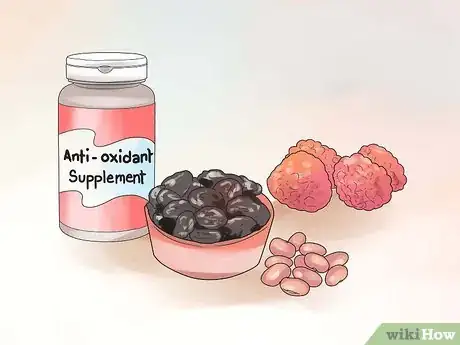

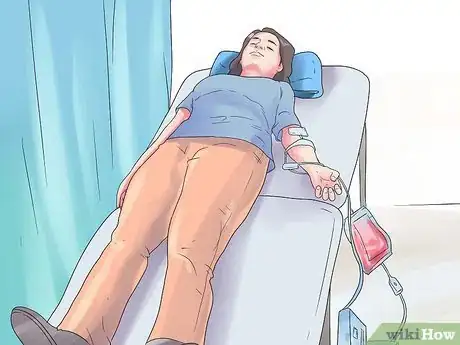
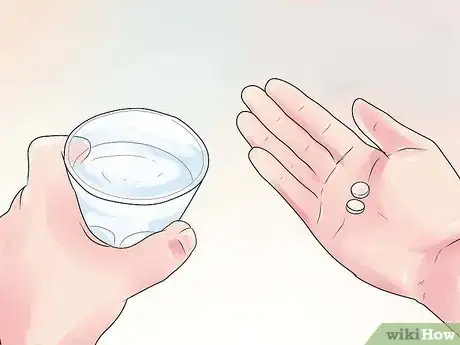

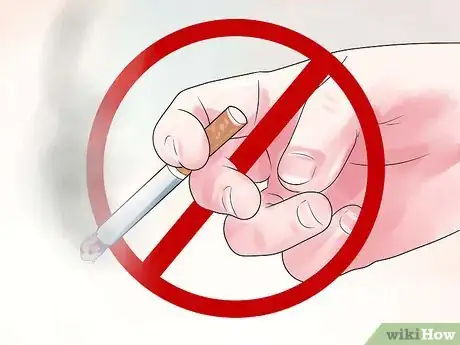
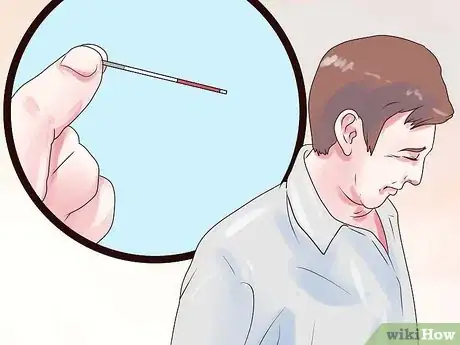
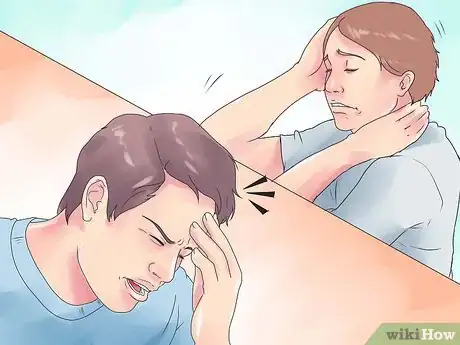


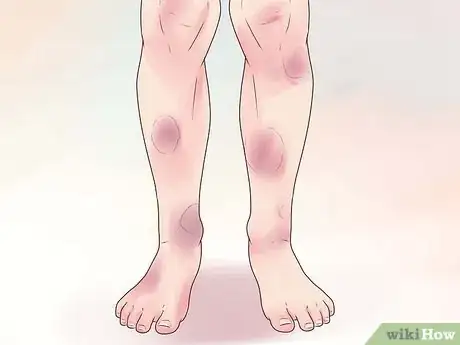
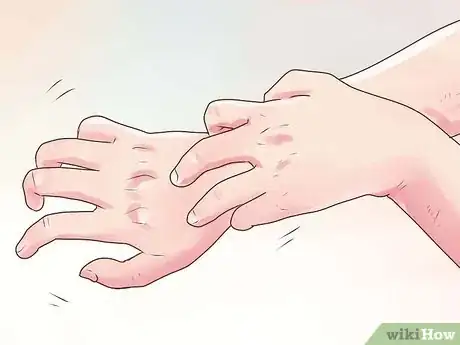








-Step-14-Version-2.webp)
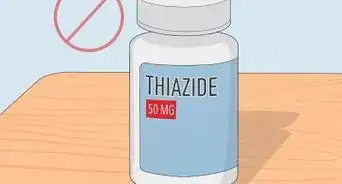
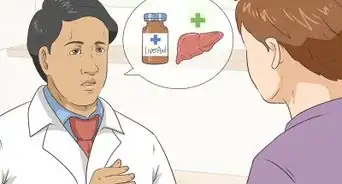


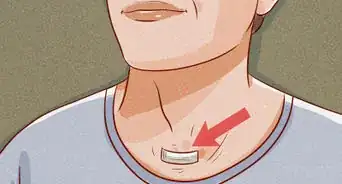











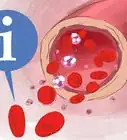
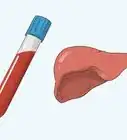




































Medical Disclaimer
The content of this article is not intended to be a substitute for professional medical advice, examination, diagnosis, or treatment. You should always contact your doctor or other qualified healthcare professional before starting, changing, or stopping any kind of health treatment.
Read More...